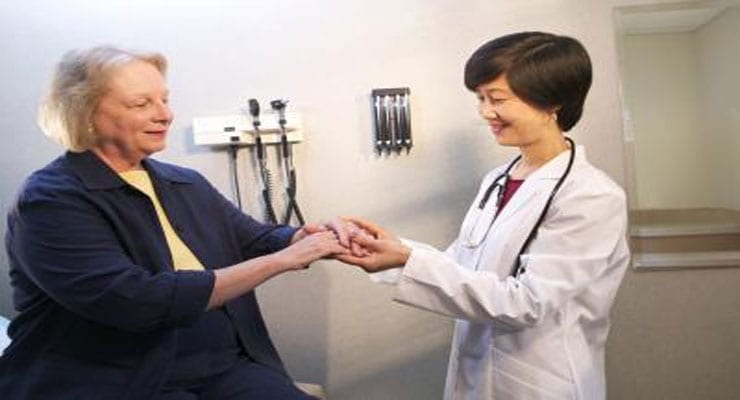Crushing chest pain and pressure might clearly signal a heart attack in men, but women report different symptoms that accompany heart problems. Certain circumstances in particular put women at greater risk for heart disease, and learning symptoms and warning signs can help prevent serious problems.
Perception/Awareness
You might associate heart disease with men, but each year, heart disease kills more women than men, according to the Mayo Clinic. More women die from cardiovascular disease and stroke than all types of cancer combined, including breast cancer, says the American Heart Association, yet awareness of the dangers remain low. The American Heart Association’s “Go Red for Women” campaign works to increase women’s awareness about heart disease and prevention.
Severity/Symptoms
Many women die from heart disease each year, in part because by the time women realize they have a problem, their hearts already suffer serious damage, says the Mayo Clinic. Women present with different symptoms than men when cardiovascular disease occurs, and the exact mechanism of heart disease and its treatment options differ as well. Women sometimes experience the familiar chest pain and pressure associated with heart attacks, but they often have more subtle signs. Abdominal or upper back discomfort can occur, as well as nausea and sweating, according to The Mayo Clinic. Pain in the chest upon exertion that subsides when you rest is another symptom common in cardiovascular disease for women.
Mechanisms
Men typically develop problems from large artery plaque deposits or atherosclerosis, but women develop regular, smooth, fatty deposits on vessel walls that narrow arteries along their entire length, says the Mayo Clinic. Women in particular suffer from narrowing of the small cardiac blood vessels that provide your heart with oxygen. When not enough oxygen nourishes the heart, you experience pain, fatigue and shortness of breath.
Lifestyle Prevention
Stopping smoking is the most important thing you can do to prevent heart disease, says the Mayo Clinic. Smoking puts women even more at risk for heart disease than men, the Mayo Clinic explains. Engaging in aerobic exercise at least 30 minutes per day, five times a week also helps lower your risk of cardiovascular disease. Eat a healthy diet low in saturated fat, cholesterol and salt, and drink alcohol in moderation. Women appear vulnerable to heart disease when triglycerides, a specific type of fat, combines with cholesterol in high numbers in the blood stream, says the American Heart Association. Keeping blood pressure stable is important, as blood pressure levels higher than 140/90 mm Hg especially increases your risk for cardiovascular disease. Monitor your blood sugar levels and keep your weight in check to prevent type 2 diabetes, which is a major risk factor for heart disease in women. Avoid stress and look after your mental health, because depression affects heart health in women, says the Mayo Clinic.
Medical Prevention/Treatment
Surgery to stent, or open up, clogged larger arteries does not always help women, because the small coronary blood vessels that cause women’s symptoms are too delicate to treat surgically. In small-vessel disorders, women depend on medical treatment and prevention. Aspirin is especially helpful for women in stroke prevention and prevention of second heart attacks, says the Mayo Clinic. Blood pressure medications such as beta-blockers and ace inhibitors slow your heart rate and improve blood flow to it. Nitroglycerin opens coronary arteries, reduces your heart’s demand for blood, and is useful when your small blood vessels cannot expand adequately on their own, the Mayo Clinic explains. Calcium channel blockers also relax the muscles that surround your coronary arteries, increase blood flow to your heart, and help control high blood pressure. Use statin-type drugs to prevent and treat the buildup of “bad” cholesterol in your blood stream and bring down your risk levels for a first or subsequent heart attack, advises the Mayo Clinic.





